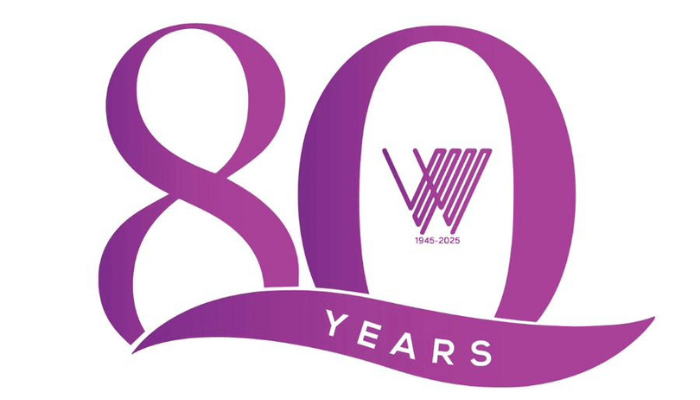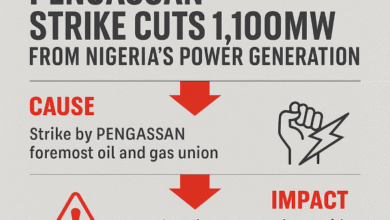Wema Bank at 80: Plotting a Strategic Return to the Top Tier of Nigerian Banking

As Nigeria’s oldest surviving indigenous bank clocks 80, Wema Bank Plc is no longer content with merely being a legacy institution. The bank is boldly signalling its intent to reclaim a spot at the top tier of the Nigerian financial services industry, leveraging its storied history as a springboard for innovation and future-facing transformation.
At its grand 80th Anniversary Gala Night in Lagos themed “Timeless Elegance”, Managing Director/CEO Moruf Oseni laid out a reinvigorated vision: not just to celebrate the past, but to reposition Wema Bank among Nigeria’s banking elite. “We have a bold vision for Nigeria’s financial future,” Oseni declared. “Our immediate aim is to reclaim our place at the industry’s forefront.”
Born in 1945 as Agbonmagbe Bank, Wema holds the badge of Nigeria’s oldest indigenous bank. But in an era where size, tech, and capital define industry leadership, heritage alone isn’t enough.
A Renewed Ambition for Tier-One Status
This ambition comes at a defining moment. Nigeria’s financial sector is undergoing seismic shifts — from recapitalisation mandates by the Central Bank to a fiercely competitive digital banking space dominated by fintechs and agile incumbents. Wema Bank’s move to assert itself as a tier-one contender underscores a broader strategy to move beyond its mid-tier comfort zone and compete more aggressively with banking giants like Zenith, Access, GTCO, and UBA.

Analysts say that for Wema Bank to make that leap, it must scale its balance sheet significantly, deepen capital buffers, broaden digital adoption, and deliver consistent earnings growth — all while navigating macroeconomic volatility and shifting consumer expectations.
A Legacy Reimagined Through Innovation
Wema Bank’s transformation is not without precedent. Born in 1945 as Agbonmagbe Bank, it holds the distinction of being Nigeria’s first indigenous bank, established during colonial rule. Renamed Wema Bank in 1969 and attaining national banking status in 2015, the bank has weathered Nigeria’s civil war, multiple financial crises, currency devaluations, and regulatory reforms.
Chairman Dr Oluwayemisi Olorunshola spoke to this legacy of endurance and foresight. “We’re not just counting years — we’re celebrating seasons, generations, eras, and transformational milestones,” she said. “It was these values that gave our founder the courage to start an indigenous bank during colonial times.”
Indeed, it’s this institutional resilience that Wema Bank is now banking on — buttressed by ALAT, Nigeria’s first fully digital bank, launched by Wema in 2017. ALAT marked a turning point, positioning the bank as a pioneer in retail fintech solutions long before the current digital banking gold rush.
Banking on People, Technology and Purpose
Oseni was emphatic that Wema’s future lies in “creativity, innovation, and unwavering customer focus.” But beyond technology, he also emphasised the human capital dimension, with a call to groom the next generation of banking professionals and empower women within the sector.
He described the Wema workforce as “knights — skilled, ready to face challenges, and fulfil their God-given potential.” This metaphor of knights captures the bank’s internal culture of readiness, discipline, and transformation.
The institution’s emphasis on inclusive banking, digital literacy, and SME support aligns strongly with Nigeria’s broader economic goals — especially under President Bola Tinubu’s Renewed Hope agenda, which is focused on restoring investor confidence and unlocking growth in key sectors.
National Recognition for an Enduring Brand
President Tinubu himself acknowledged Wema Bank’s role in Nigeria’s financial evolution. In a statement issued by presidential spokesperson Bayo Onanuga, the President congratulated the bank on its 80th anniversary, praising its technological innovations and long-standing support for indigenous businesses.
“Over the last eight decades, the bank has focused on the vision of its founding fathers to support Nigerian businesses across all key economic sectors… vital for sustainable growth,” the President noted, expressing optimism about Wema’s future under a stabilising macroeconomic climate.
Vice President Kashim Shettima, represented at the gala by his aide Temitola Adekunle-Johnson, also described Wema as a financial institution that has “stood the test of time” — an uncommon feat in a sector that has seen dozens of mergers, acquisitions, and regulatory purges.
Philanthropist Chief Kessington Adebutu echoed the sentiment, praising Wema’s growth “from humble roots to major industry presence.”
What Next for Wema?
The road to tier-one banking is not paved with sentiment. For Wema Bank to truly return to the top league, it must:
- Scale aggressively: Grow its asset base beyond the ₦1 trillion mark through strategic mergers or capital raises.
- Expand customer reach: Deepen penetration in underserved regions and sectors, especially SMEs and informal traders.
- Double down on digital: Capitalise on ALAT’s brand equity to develop a full fintech ecosystem.
- Strengthen ESG commitments: Align with global standards on sustainability, governance, and impact financing.
BRANDECONOMY TAKE: A Legacy Bank Eyes the Summit Again
MD/CEO Moruf Oseni has now thrown down the gauntlet, declaring Wema’s intent to reclaim top-tier status by leveraging digital innovation, talent development, and deep customer-centricity. This ambition is anchored on the foundation of ALAT, its digital bank pioneer, and a growing national footprint.
With the Central Bank’s recapitalisation drive looming, Wema’s next moves will be closely watched. M&A, strategic partnerships, or bold equity plays may be necessary to bridge the gap with Nigeria’s banking giants. But Wema’s advantage lies in its nimbleness, tech DNA, and institutional memory.
Turning 80 isn’t just a milestone — it’s a strategic inflection point. For Wema, the next decade could redefine its legacy not as Nigeria’s oldest bank, but as one of its most resilient and relevant players in the future of African banking.
Wema Bank at 80 means it is no longer the bank of yesterday. It is now a symbol of Nigeria’s economic story — one of resilience, reinvention, and relentless ambition.











